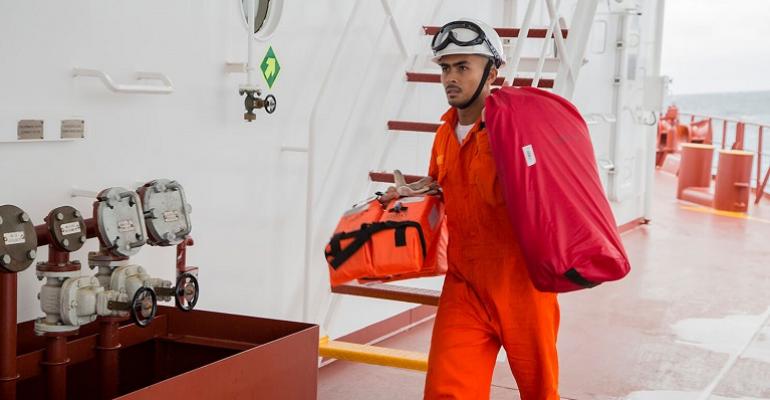An International Labour Organisation (ILO) press release said the move meant that more than 96% of the world’s gross shipping tonnage was now covered by an internationally agreed set of standards, which also applied to many seafarer labour supplying countries of the world.
“Joining the MLC, 2006 is a clear confirmation of the Sultanate of Oman’s longstanding tradition as a prominent maritime nation in the region. This ratification reaffirms the commitment of my country to uphold the provisions of the Convention to achieve decent work for seafarers,” said Idris Al Khanjari, Oman’s Ambassador to the UN in Geneva, who formally submitted ratification documents on 29 March.
“We shall spare no efforts in safeguarding seafarers labour rights.”
The coronavirus pandemic has thrown the plight of neglected seafarers all over the world into stark light, and the accession of the MLC by an Arab member of the ILO, at a time when GCC nations—and in particular Qatar, in the build-up to the FIFA World Cup 2022, taking place in and around Doha later this year—have been accused of mistreating labourers, is timely.
Adopted by the ILO member states in 2006, the MLC sought to unify and standardiae a disparate set of industry labour standards that no longer reflected contemporary working and living conditions, had low ratification levels, or inadequate enforcement and compliance systems. It was amended in and 2014, 2016 and 2018.
“Combining these often very detailed instruments into one Convention makes it easier for countries to regulate and enforce consistent industry norms and standards, worldwide,” the ILO said.
Oman is moving ahead with the effort to consolidate several sectors of the economy into major groupings, with state-owned transport group Asyad set to integrate all aspects of the maritime industry under one umbrella. Last year, it announced plans to restructure its operations in order to focus on logistics, port services, free zones, shipping, drydocks and e-commerce, with the transport ministry taking over supervision of the company's land transportation activity, official sources said.
“As we saw throughout the pandemic and the crew change crisis, governments who have ratified the Convention must stand by their words and take action to protect seafarers’ rights,” said Guy Platten, secretary general of the International Chamber of Shipping.
“Now more than ever it is vital that more governments ratify this important Convention and I hope that we will reach 150 signatories soon to bring it in line with the three International Maritime Organization pillar conventions of SOLAS, STCW and MARPOL.”
Copyright © 2024. All rights reserved. Seatrade, a trading name of Informa Markets (UK) Limited.
Add Seatrade Maritime News to your Google News feed.  |

